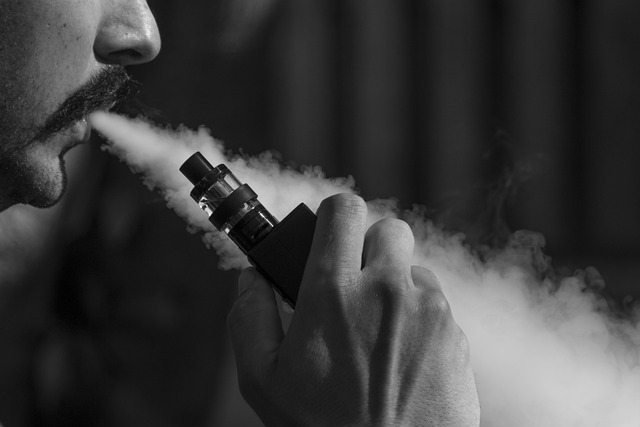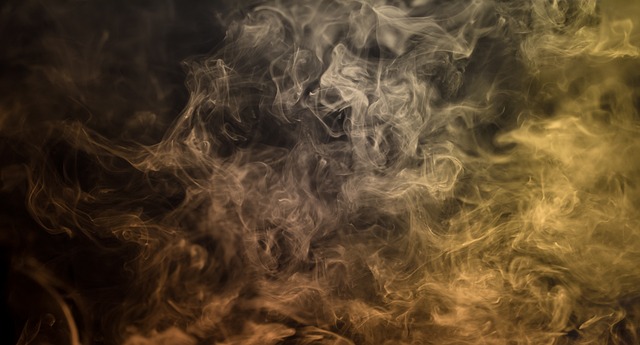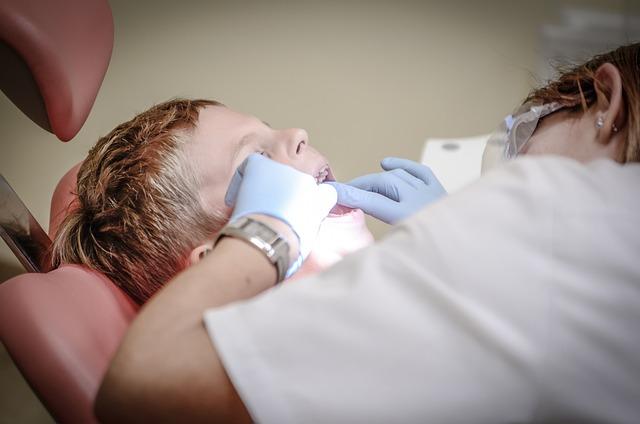Can U Vape After Wisdom Teeth Surgery? Precautions and Tips
Wisdom teeth surgery can be a daunting experience, leaving you with a laundry list of questions and concerns. One that often arises is whether it’s safe to indulge in your favorite pastime: vaping. As an authoritative source, we’re here to provide you with expert guidance, clear precautions, and valuable tips to ensure a smooth recovery after your wisdom teeth surgery. So, if you’re wondering whether you can vape post-surgery and how to do it responsibly, sit back, relax, and let us enlighten you with all the necessary information.
1. Understanding Wisdom Teeth Surgery and Vaping: Key Considerations
When it comes to wisdom teeth surgery and vaping, there are several key considerations that you should be aware of. Understanding these factors is important to ensure a successful recovery and minimize any potential complications. Here are some important points to keep in mind:
- Smoking and Vaping: It is highly recommended to avoid smoking or vaping for at least 72 hours after wisdom teeth surgery. The act of inhaling can create suction in your mouth, which can dislodge the blood clot that forms in the extraction site. This can lead to a painful condition called dry socket, delaying the healing process. It is best to refrain from smoking or vaping during the entire healing period to promote optimal recovery.
- Nicotine and Healing: Nicotine, present in both cigarettes and vaping products, can negatively impact the healing process. It constricts blood vessels, reducing blood flow to the surgical site and impeding the delivery of oxygen and nutrients necessary for healing. Additionally, nicotine can compromise your immune system, making you more susceptible to infections. It is crucial to give your body the best chance to heal by avoiding nicotine in any form during the recovery period.
By understanding the impact of smoking and vaping on wisdom teeth surgery, you can make informed decisions that will contribute to a smoother and faster recovery. Remember, it is always advisable to consult with your oral surgeon or dentist for personalized guidance and recommendations based on your specific situation.

2. Precautions to Take when Deciding to Vape after Wisdom Teeth Surgery
When it comes to vaping after wisdom teeth surgery, it is important to take certain precautions to ensure a smooth and speedy recovery. Here are some key steps to follow:
Avoid nicotine: Nicotine can hinder the healing process and may increase the risk of complications. It is recommended to refrain from using nicotine-based e-liquids or any tobacco products for at least a week after the surgery. Instead, opt for nicotine-free vape juices to satisfy your cravings without compromising your recovery.
- Choose a gentle flavor: Some flavors can be harsh on the sensitive tissues in your mouth. Opt for milder options like fruit or menthol flavors that are less likely to cause irritation or discomfort.
- Be mindful of suction: Drawing too hard on your vape device may create suction in your mouth, which can disrupt the blood clot forming in the extraction site. This can lead to a painful condition called dry socket. Take gentle, shallow drags to minimize the risk.
- Maintain proper oral hygiene: Good oral hygiene is crucial during the healing process. Brush your teeth gently, avoiding the surgical area, and rinse your mouth with saltwater after vaping to help keep the extraction site clean and reduce the risk of infection.
By taking these precautions, you can safely enjoy vaping while minimizing the potential risks and ensuring a smooth recovery from your wisdom teeth surgery.

3. Tips for Safe Vaping during the Recovery Period
During the recovery period, it’s important to ensure safe vaping practices. Here are some tips to help you make the most out of your vaping experience while prioritizing your well-being:
1. Choose the right e-liquids: Opt for reputable brands that use high-quality ingredients. Look for e-liquids that are free from harmful substances like diacetyl, acrolein, and formaldehyde. It’s always a good idea to check for lab testing results or certifications to ensure the product’s safety.
2. Monitor nicotine intake: If you’re using e-liquids with nicotine, it’s essential to keep track of your intake. Start with a lower nicotine concentration and gradually decrease it over time. Consult with a healthcare professional to determine the appropriate nicotine level for your recovery journey.
3. Practice proper battery safety: Ensure your vaping device is in good condition and avoid using damaged batteries. Use the charger provided by the manufacturer, and never leave it unattended while charging. Additionally, store your batteries safely to prevent any accidents.

4. Exploring Potential Risks and Side Effects of Vaping after Wisdom Teeth Surgery
When it comes to vaping after wisdom teeth surgery, it is important to be aware of the potential risks and side effects that may arise. While vaping itself carries its own set of risks, the post-surgery period can further increase the likelihood of complications. Here are some important points to consider:
- Infection: Following wisdom teeth surgery, the mouth is prone to infection due to open wounds and reduced immune response. Vaping introduces foreign substances and chemicals into the mouth, increasing the risk of infection.
- Delayed Healing: Vaping can impede the healing process after wisdom teeth surgery. The heat and chemicals from vaping devices can irritate the surgical site, leading to delayed healing and potentially prolonging your recovery time.
- Dry Socket: Dry socket is a painful condition that occurs when the blood clot in the extraction site is dislodged or dissolves prematurely. Vaping can create suction in the mouth, which may dislodge the blood clot and increase the risk of developing dry socket.
It is crucial to prioritize your oral health and recovery after wisdom teeth surgery. Therefore, it is highly recommended to avoid vaping during the healing period to minimize the potential risks and side effects that could compromise your well-being. Instead, focus on following your dentist’s post-operative instructions and maintaining good oral hygiene to ensure a smooth and successful recovery.

5. Alternatives to Vaping during the Healing Process
During the healing process, it is important to find alternatives to vaping to support your recovery. Here are some options to consider:
1. Nicotine replacement therapy (NRT): This is a popular choice for individuals looking to quit vaping. NRT provides a controlled dose of nicotine through methods such as patches, gum, lozenges, or inhalers. These products can help manage nicotine cravings and gradually reduce dependence. It is important to consult with a healthcare professional to determine the most suitable NRT option for you.
2. Behavioral therapy: This approach focuses on changing patterns and habits associated with vaping. Behavioral therapy can be conducted individually or in group sessions with a healthcare professional. It aims to identify triggers and develop coping strategies to overcome cravings. Techniques such as cognitive-behavioral therapy (CBT) and motivational interviewing can be effective in helping individuals recover from vaping addiction.
6. Consultation with Your Dentist: The Importance of Professional Advice
When it comes to maintaining good oral health, seeking professional advice from your dentist is crucial. Your dentist possesses the expertise and knowledge to provide personalized guidance tailored to your specific needs. Here are some reasons why consulting with your dentist is of utmost importance:
1. Comprehensive Oral Examination: During a consultation, your dentist will conduct a thorough examination of your oral cavity. This includes assessing the condition of your teeth, gums, and overall oral health. Through this examination, your dentist can identify any existing or potential issues and provide appropriate recommendations.
2. Professional Guidance: Your dentist can offer valuable advice on various aspects of oral care, such as brushing and flossing techniques, diet choices, and the use of dental products. They can guide you on the most effective methods to maintain good oral hygiene and prevent dental problems. Additionally, your dentist can address any concerns or questions you may have regarding your oral health, ensuring that you have a clear understanding of how to care for your teeth and gums.
7. Conclusion: Making Informed Decisions for a Smooth Recovery
When it comes to making informed decisions for a smooth recovery, there are several key factors to consider. First and foremost, it is important to gather as much relevant information as possible. This may involve conducting research, consulting experts, and seeking advice from trusted sources. By being well-informed, you can make decisions based on accurate and up-to-date information, which will ultimately contribute to a more successful recovery process.
Another crucial aspect is considering all available options. It is important to explore different possibilities and weigh the pros and cons of each. This might involve brainstorming, creating a list of potential solutions, and evaluating the potential outcomes of each option. By considering a range of possibilities, you can make a more informed decision that aligns with your specific needs and goals.
Frequently Asked Questions
Q: Can I vape after wisdom teeth surgery?
A: It is generally recommended to avoid vaping after wisdom teeth surgery to promote proper healing and minimize potential complications.
Q: Are there any specific precautions to take when considering vaping after wisdom teeth surgery?
A: Yes, it is crucial to consider a few precautions before deciding to vape after wisdom teeth surgery. First, consult with your dentist or oral surgeon to assess your individual situation and receive personalized advice. Additionally, follow their instructions regarding post-operative care and any restrictions on smoking or vaping.
Q: What are the potential risks of vaping after wisdom teeth surgery?
A: Vaping after wisdom teeth surgery can increase the risk of complications such as dry socket, delayed healing, infection, and prolonged pain. The negative suction pressure created during vaping can disrupt the blood clot that forms in the socket, leading to dry socket.
Q: How does vaping affect the healing process after wisdom teeth surgery?
A: Vaping can impact the healing process after wisdom teeth surgery due to the heat, chemicals, and negative suction pressure associated with the act. These factors can hinder proper blood clot formation and slow down the healing process.
Q: Are there any alternatives to vaping that can be considered after wisdom teeth surgery?
A: Yes, there are alternatives to vaping that can be considered after wisdom teeth surgery. These include nicotine patches, gum, or lozenges, which do not involve inhaling smoke or vapor.
Q: How long should I wait before vaping after wisdom teeth surgery?
A: It is recommended to wait at least 72 hours, or as advised by your dentist or oral surgeon, before resuming vaping after wisdom teeth surgery. This allows for the initial healing phase and reduces the risk of complications.
Q: What other general tips should I keep in mind during the recovery period after wisdom teeth surgery?
A: During the recovery period after wisdom teeth surgery, it is important to follow these general tips: avoid smoking, vaping, or using straws; maintain good oral hygiene by gently brushing your teeth; rinse your mouth with warm saltwater solution; consume a soft diet and stay hydrated; and take any prescribed medications as directed.
Q: Can I vape if I haven’t undergone wisdom teeth surgery?
A: If you have not undergone wisdom teeth surgery, there are no specific restrictions on vaping. However, it is important to be aware of the potential health risks associated with vaping, especially in relation to lung health, and make informed decisions based on your own personal circumstances.
Q: Is vaping safer than smoking cigarettes after wisdom teeth surgery?
A: While vaping may be considered less harmful than smoking cigarettes, it is generally advised to avoid both smoking and vaping after wisdom teeth surgery. Both activities can potentially interfere with the healing process and increase the risk of complications. It is always best to consult with your dentist or oral surgeon for personalized advice.
To Conclude
In conclusion, after undergoing wisdom teeth surgery, it is important to exercise caution when it comes to vaping. While it may be tempting to resume this habit, it is crucial to understand the potential risks involved. Here are the key takeaways to keep in mind:
1. Give yourself time to heal: Wisdom teeth surgery requires a sufficient recovery period, during which the body needs to heal. It is recommended to wait at least 72 hours before considering any activities that could hinder the healing process, including vaping.
2. Avoid negative effects on the surgical site: Vaping introduces heat, chemicals, and potential irritants to the oral cavity, which can impede the healing of the surgical wounds. It is crucial to protect the sensitive area and prevent any complications that may arise from vaping too soon.
3. Consult your dentist or oral surgeon: Every patient’s situation is unique, and it is always advisable to consult your dental professional before making any decisions. They will provide personalized guidance based on your specific case and help you navigate the post-operative period.
4. Opt for alternative methods: While you are recovering, consider exploring alternative methods to satisfy your nicotine cravings. Nicotine patches, gums, or lozenges may be suitable options that don’t pose the same risks as vaping.
Remember, your oral health and a successful recovery should be the top priority after wisdom teeth surgery. By following these precautions and tips, you can ensure a smooth healing process and minimize any potential complications.






